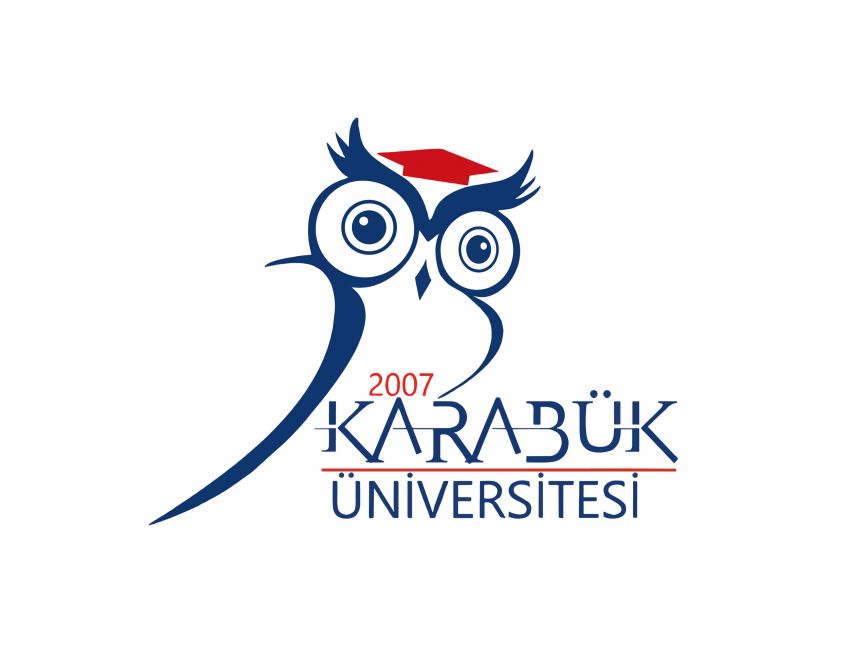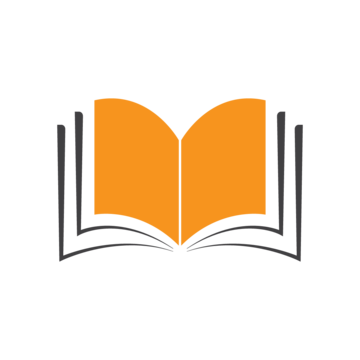History
Overview
<!-- wp:paragraph --> <p><strong>History Program at Karabük University: Exploring the Past, Shaping the Future</strong></p> <!-- /wp:paragraph --> <!-- wp:paragraph --> <p>The <strong>History</strong> program at Karabük University offers an in-depth study of historical events, figures, and developments that have shaped human societies across different periods and regions. This program is designed to provide students with a comprehensive understanding of the past, focusing on key moments, movements, and trends that have influenced the modern world. By studying history, students gain critical thinking skills, research techniques, and the ability to analyze and interpret historical data, preparing them for diverse career paths in academia, research, public policy, museums, and heritage management.</p> <!-- /wp:paragraph --> <!-- wp:heading {"level":3} --> <h3 class="wp-block-heading">Program Mission and Vision</h3> <!-- /wp:heading --> <!-- wp:paragraph --> <p>The mission of the <strong>History</strong> program is to cultivate a deep understanding of history while developing the critical thinking and research skills necessary to engage with and interpret the past. The program’s vision is to produce graduates who are equipped with the knowledge and tools to make meaningful contributions to historical research, education, and the preservation of cultural heritage, with a focus on fostering a global perspective on history.</p> <!-- /wp:paragraph --> <!-- wp:heading {"level":3} --> <h3 class="wp-block-heading">Curriculum Overview</h3> <!-- /wp:heading --> <!-- wp:paragraph --> <p>The <strong>History</strong> program at Karabük University offers a well-rounded education that covers various periods of history, from ancient civilizations to contemporary world events. The curriculum combines theoretical studies with practical skills, ensuring that students not only understand historical events but also develop expertise in historical research and analysis.</p> <!-- /wp:paragraph --> <!-- wp:heading {"level":3} --> <h3 class="wp-block-heading">Core Foundations</h3> <!-- /wp:heading --> <!-- wp:paragraph --> <p><strong>Introduction to History</strong>: Study the basic principles of history, including historiography, the methods used by historians, and the role of history in shaping societies.</p> <!-- /wp:paragraph --> <!-- wp:paragraph --> <p><strong>Ancient Civilizations</strong>: Explore the origins and developments of early human civilizations, including those in Mesopotamia, Egypt, Greece, Rome, and China, and understand their contributions to modern society.</p> <!-- /wp:paragraph --> <!-- wp:paragraph --> <p><strong>Medieval History</strong>: Analyze the social, political, and economic structures of the Middle Ages, examining the fall of the Roman Empire, the rise of feudalism, and the influence of religion on medieval societies.</p> <!-- /wp:paragraph --> <!-- wp:paragraph --> <p><strong>Modern History</strong>: Investigate key events and movements from the Renaissance to the 20th century, including the Age of Exploration, the Enlightenment, the French Revolution, the Industrial Revolution, and the two World Wars.</p> <!-- /wp:paragraph --> <!-- wp:paragraph --> <p><strong>Contemporary History</strong>: Examine the events and trends of the 20th and 21st centuries, including the Cold War, decolonization, globalization, and the evolution of international relations.</p> <!-- /wp:paragraph --> <!-- wp:paragraph --> <p><strong>World History</strong>: Study global historical trends, focusing on the interconnectedness of regions and cultures and how global events have shaped the modern world.</p> <!-- /wp:paragraph --> <!-- wp:paragraph --> <p><strong>Social and Cultural History</strong>: Investigate the role of social structures, class, gender, race, and culture in historical developments, and explore the experiences of marginalized groups throughout history.</p> <!-- /wp:paragraph --> <!-- wp:paragraph --> <p><strong>Political History</strong>: Explore the development of political systems, ideologies, and movements, including the evolution of democracies, monarchies, and authoritarian regimes, and their impact on world events.</p> <!-- /wp:paragraph --> <!-- wp:paragraph --> <p><strong>Economic History</strong>: Study the history of economic systems, trade, industry, and the development of global economies, focusing on key events such as the rise of capitalism and the effects of economic crises.</p> <!-- /wp:paragraph --> <!-- wp:paragraph --> <p><strong>History of Ideas</strong>: Investigate the development of philosophical, religious, and intellectual ideas over time and how these ideas have shaped political and cultural history.</p> <!-- /wp:paragraph --> <!-- wp:heading {"level":3} --> <h3 class="wp-block-heading">Specialized Topics in History</h3> <!-- /wp:heading --> <!-- wp:paragraph --> <p><strong>History of the Ottoman Empire</strong>: Examine the history of the Ottoman Empire, including its rise to power, administration, military structure, and its cultural and political influence across three continents.</p> <!-- /wp:paragraph --> <!-- wp:paragraph --> <p><strong>History of Ancient Civilizations</strong>: Delve deeper into the study of specific ancient cultures, such as those of Mesopotamia, Egypt, Greece, and Rome, focusing on their achievements in governance, art, and technology.</p> <!-- /wp:paragraph --> <!-- wp:paragraph --> <p><strong>Modern European History</strong>: Explore the political, cultural, and social history of Europe from the Renaissance to the present, focusing on key movements such as nationalism, imperialism, and the World Wars.</p> <!-- /wp:paragraph --> <!-- wp:paragraph --> <p><strong>History of the Middle East</strong>: Study the historical development of the Middle East, examining the rise of Islam, the Ottoman Empire, colonialism, and the modern political dynamics of the region.</p> <!-- /wp:paragraph --> <!-- wp:paragraph --> <p><strong>Colonialism and Post-Colonialism</strong>: Investigate the impact of European colonialism on global societies and examine the processes and consequences of decolonization in Africa, Asia, and the Americas.</p> <!-- /wp:paragraph --> <!-- wp:paragraph --> <p><strong>Globalization and History</strong>: Study the history of globalization and its impact on culture, trade, politics, and society, analyzing both the positive and negative effects on different parts of the world.</p> <!-- /wp:paragraph --> <!-- wp:paragraph --> <p><strong>Historiography and Methodology</strong>: Focus on the study of how history has been written, analyzing different approaches to historical interpretation and the evolution of historical methods.</p> <!-- /wp:paragraph --> <!-- wp:paragraph --> <p><strong>Public History</strong>: Study the presentation and interpretation of history in public spaces, including museums, archives, historical sites, and digital platforms, and explore the role of historians in public education.</p> <!-- /wp:paragraph --> <!-- wp:paragraph --> <p><strong>History of Science and Technology</strong>: Examine the development of scientific knowledge and technological advancements throughout history, and how these have shaped human societies and the world.</p> <!-- /wp:paragraph --> <!-- wp:heading {"level":3} --> <h3 class="wp-block-heading">Practical Applications</h3> <!-- /wp:heading --> <!-- wp:paragraph --> <p><strong>Research Projects and Data Collection</strong>: Engage in research projects that allow students to apply their historical knowledge and methodologies, focusing on primary sources, archival work, and historical analysis.</p> <!-- /wp:paragraph --> <!-- wp:paragraph --> <p><strong>Internships and Fieldwork</strong>: Gain practical experience through internships at museums, cultural heritage sites, archives, or research institutions, where students can work on historical preservation, research, and public history initiatives.</p> <!-- /wp:paragraph --> <!-- wp:paragraph --> <p><strong>Historical Analysis and Writing</strong>: Develop critical skills in historical analysis and writing, producing research papers, essays, and articles based on primary and secondary sources.</p> <!-- /wp:paragraph --> <!-- wp:paragraph --> <p><strong>Capstone Project</strong>: Complete a final thesis or research project on a specific historical topic, demonstrating the ability to conduct independent research and contribute to the field of history.</p> <!-- /wp:paragraph --> <!-- wp:heading {"level":3} --> <h3 class="wp-block-heading">Emerging Trends in History</h3> <!-- /wp:heading --> <!-- wp:paragraph --> <p><strong>Digital History</strong>: Explore the use of digital technologies in historical research and education, including the use of databases, digital archives, and online platforms for historical analysis.</p> <!-- /wp:paragraph --> <!-- wp:paragraph --> <p><strong>Public History and Heritage Management</strong>: Study how historical knowledge is disseminated to the public through museums, historical sites, documentaries, and media, and learn about the management and preservation of cultural heritage.</p> <!-- /wp:paragraph --> <!-- wp:paragraph --> <p><strong>Environmental History</strong>: Investigate the relationship between humans and the environment over time, exploring how societies have interacted with natural resources and the impact of human activities on the planet.</p> <!-- /wp:paragraph --> <!-- wp:paragraph --> <p><strong>Global History and Transnational Studies</strong>: Examine historical events from a global perspective, focusing on cross-cultural interactions, migrations, and the global impact of events such as colonialism, war, and globalization.</p> <!-- /wp:paragraph --> <!-- wp:heading {"level":3} --> <h3 class="wp-block-heading">Career Opportunities</h3> <!-- /wp:heading --> <!-- wp:paragraph --> <p>Graduates of the <strong>History</strong> program are prepared for a wide range of careers in the public and private sectors, including:</p> <!-- /wp:paragraph --> <!-- wp:list --> <ul class="wp-block-list"><!-- wp:list-item --> <li><strong>Historian</strong>: Conduct research and analysis on historical events, periods, and trends, and publish findings in academic journals or books.</li> <!-- /wp:list-item --> <!-- wp:list-item --> <li><strong>Archivist</strong>: Manage and preserve historical records, documents, and artifacts, working in museums, libraries, or archives.</li> <!-- /wp:list-item --> <!-- wp:list-item --> <li><strong>Museum Curator</strong>: Design and curate exhibitions, manage collections, and educate the public about historical artifacts and sites.</li> <!-- /wp:list-item --> <!-- wp:list-item --> <li><strong>Cultural Heritage Manager</strong>: Work in the preservation and management of cultural heritage sites, working with government agencies, NGOs, or private firms.</li> <!-- /wp:list-item --> <!-- wp:list-item --> <li><strong>Educator</strong>: Teach history at the primary, secondary, or university level, educating students about historical events, research methodologies, and historical interpretation.</li> <!-- /wp:list-item --> <!-- wp:list-item --> <li><strong>Public Policy Analyst</strong>: Use historical analysis to inform public policy decisions, providing insights into the social, political, and economic impacts of past events.</li> <!-- /wp:list-item --> <!-- wp:list-item --> <li><strong>Researcher</strong>: Work in research institutions or think tanks, contributing to historical scholarship, policy analysis, and the development of new interpretations of historical events.</li> <!-- /wp:list-item --> <!-- wp:list-item --> <li><strong>Journalist</strong>: Write articles, reports, or documentaries on historical topics, contributing to public knowledge of historical events and their relevance to contemporary issues.</li> <!-- /wp:list-item --></ul> <!-- /wp:list --> <!-- wp:heading {"level":3} --> <h3 class="wp-block-heading">Why Choose Karabük University?</h3> <!-- /wp:heading --> <!-- wp:list --> <ul class="wp-block-list"><!-- wp:list-item --> <li><strong>Comprehensive Curriculum</strong>: The program offers a rich and diverse curriculum that covers all major historical periods, regions, and methodologies, preparing students for a variety of career paths.</li> <!-- /wp:list-item --> <!-- wp:list-item --> <li><strong>Experienced Faculty</strong>: Learn from professors with extensive academic and practical experience in history, who provide both theoretical knowledge and practical insights.</li> <!-- /wp:list-item --> <!-- wp:list-item --> <li><strong>Hands-On Learning</strong>: The program emphasizes research, fieldwork, and internships, giving students the opportunity to apply their knowledge in real-world settings.</li> <!-- /wp:list-item --> <!-- wp:list-item --> <li><strong>State-of-the-Art Resources</strong>: Students have access to a modern library, archives, and research facilities, allowing them to conduct in-depth research and engage with historical materials.</li> <!-- /wp:list-item --></ul> <!-- /wp:list --> <!-- wp:heading {"level":3} --> <h3 class="wp-block-heading">Shaping the Future with a Deep Understanding of the Past</h3> <!-- /wp:heading --> <!-- wp:paragraph --> <p>Karabük University’s <strong>History</strong> program is dedicated to providing students with the knowledge and skills to explore the past and contribute to our understanding of the present. By studying history, students not only learn about past events but also gain the tools to engage with contemporary issues and shape the future. Whether pursuing a career in academia, public policy, or heritage management, the <strong>History</strong> program at Karabük University provides an ideal foundation for a meaningful and impactful career.</p> <!-- /wp:paragraph -->
Program Description
The History program at Karabuk University offers a comprehensive curriculum designed to prepare students for successful careers in this dynamic field. The program combines theoretical knowledge with practical skills, ensuring graduates are ready for the challenges of the industry.
The program is taught by experienced faculty members who are leaders in their respective fields, providing students with insights into current industry practices and future trends.
Curriculum Highlights
- Advanced Research Methods: Learn cutting-edge research techniques and methodologies.
- Industry Analysis: Explore current industry trends and develop analytical skills.
- Leadership and Management: Develop essential leadership skills for managing teams and projects.
- Innovation and Entrepreneurship: Cultivate creative thinking and entrepreneurial mindset.
- Digital Transformation: Understand how technology is reshaping industries and businesses.
- Sustainable Development: Explore environmentally sustainable practices and their implementation.
- Global Markets: Study international market dynamics and global business operations.
- Technology Integration: Learn to leverage technology for improved business outcomes.
Requirements:
- Bachelor's degree (for Master's programs) or equivalent qualifications.
- Proven English language proficiency (IELTS 6.5+ or equivalent).
- Complete transcripts from previous education.
- A compelling letter of motivation explaining your interest in the program.
- Two letters of recommendation from academic or professional references.
- Valid passport with appropriate visa status or eligibility.
Benefits:
- World-class faculty with extensive industry experience.
- Modern campus facilities and cutting-edge learning environments.
- Strong industry partnerships providing networking opportunities.
- Internship opportunities with leading companies in the field.
- Comprehensive career services including job placement assistance.
- Access to a global alumni network for lifelong professional connections.
Begin your educational journey today.
Apply now and take the first step towards your future.






